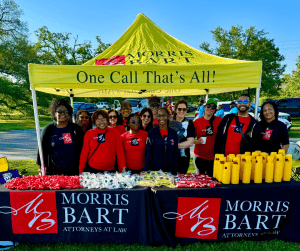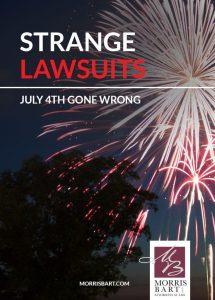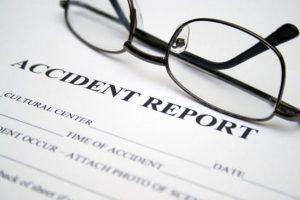
We’ve all heard someone say, “Oh, so and so was just being negligent when he ran that red light,” or “it was simple negligence when she forgot to turn off the power.” Clearly, negligence means someone has carelessly done something they weren’t supposed to, but does the concept have a legal meaning?
As it turns out, negligence is a central idea in most personal injury cases. Victims must prove negligence occurred to secure a settlement or verdict. Here’s what you need to know about the concept of legal negligence and how it can impact your ability to recover compensation after an accident.
Negligence Defined: What Is It?
A simple definition of negligence is “the failure to take proper care, and, as a result, that failure causes injury or damage to someone.” In layman’s terms, that means someone did something they were not supposed to do or failed to do something they were supposed to do, leading to someone else’s injury.
So, where does the concept of negligence come from? It’s been around in various laws for hundreds of years. However, people began to view it as grounds for legal action more often during the Industrial Revolution. As more workers were injured by employers or modern technology, they looked for someone to hold accountable—and the modern American concept of negligence was born.
For a free legal consultation, call 800-537-8185
When does Negligence Occur?
Today, every state in the United States recognizes negligence, even if the legal descriptions are slightly different. Many types of incidents and accidents could support a negligence-based claim, including:
- Car accidents
- Truck accidents
- Boating accidents
- Slip and falls
- Trip and falls
- Pool injuries
- Other premises liability injuries
- Defective product injuries
- Medical malpractice
For example, to recover compensation based on a car insurance claim, you will need to prove negligence occurred, who acted negligently, and the value of the damages they caused. To prove that someone was negligent, you will have to have evidence of four elements:
Duty
You must show that the person who injured you—or who owned or cared for the equipment that injured you—had a duty to operate in a way that would not cause injury. In other words, they had a duty to make sure this wouldn’t happen.
Breach
Next, you must show that the person breached that duty. Sometimes freak accidents happen, and if a person can show they were doing everything right and did not breach their duty to others, a claim based on negligence may fail.
Causation
You must show that the breach of duty caused your injuries. Sometimes, even when a person breaches their duty of care, it does not cause an accident or injury. An example of this would be if a store fails to mop up a spill, but the injured person slipped because of their shoes. As such, shared fault may come into play in some cases.
Damages
Finally, you must show that the breach of duty caused you to suffer damages. In a personal injury case, you will usually need to provide medical records of injury and treatment. Other common types of harm include financial and emotional distress.
Contributory Negligence Versus Comparative Negligence: Here’s Where It Starts to Get Complicated
In some cases, more than one party shares in the fault—potentially including the victim. This scenario brings up concepts known as comparative and contributory negligence. These legal approaches look at the victim’s actions and may limit or bar their recovery based on their own participation in the accident.
This is usually done by a judge, who assigns percentages of fault to each person legally responsible for a crash. How this affects your case depends on the state’s laws and the percentage assigned to you.
Pure Contributory Negligence
In states with pure contributory negligence, the victim is barred from recovery if they were negligent at all. They will not be allowed to recover compensation for their injuries, no matter how negligent the other party was. Only the District of Columbia and four states use these laws: Alabama, Maryland, North Carolina, and Virginia.
Pure Comparative Fault
In contrast, states with pure comparative fault will allow an injured party to seek compensation even if they were 99 percent at fault. However, their recovery will be reduced by their own percentage of fault.
For example, if a jury found that the plaintiff’s injuries were valued at $100,000, a plaintiff who is 99 percent at fault would only recover $1,000. Likewise, one who is only 25 percent responsible for their accident could receive 75 percent of the value of their documented expenses and losses.
Thirteen states use pure comparative fault, including Alaska, Arizona, California, Florida, Kentucky, Louisiana, Mississippi, Missouri, New Mexico, New York, Rhode Island, South Dakota, and Washington.
Modified Approaches
The remaining states use a modified approach to comparative negligence, barring the plaintiff from recovering if they are above a certain percentage at fault. For example, in states with a 50 percent rule, a person can only recover money damages for their injuries if they are 49 percent or less at fault. The states that use these laws include Arkansas, Colorado, Georgia, Idaho, Kansas, Maine, Nebraska, North Dakota, South Carolina, Tennessee, Utah, and West Virginia.
The remaining twenty-one states use the 51 percent rule. This rule is very similar to the 50% rule, although it increases the cut-off by one percent. In both cases, the plaintiff’s damages are reduced by their at-fault percentage.
The states using the 51 percent rule include Connecticut, Delaware, Hawaii, Illinois, Indiana, Iowa, Massachusetts, Michigan, Minnesota, Montana, Nevada, New Hampshire, New Jersey, Ohio, Oklahoma, Oregon, Pennsylvania, Texas, Vermont, Wisconsin, and Wyoming.
Click to contact our personal injury lawyers today
Types of Negligence
Several types of negligence can occur that may come up in your legal case. This could include:
Gross Negligence
This phrase means exactly what it sounds like; someone has been grossly negligent in fulfilling their duty. For example, instead of just forgetting to do something at work, someone sleeping on the job or using drugs could be found grossly negligent.
Per se Negligence
This means you can show someone was negligent because they breached a duty created by statute. This comes up a lot in car accident cases where the liable driver has broken the law.
Tort Negligence
Some states refer to “negligence” as “tort negligence” because these cases fall under the umbrella of tort claims in civil litigation.
Strict Liability
There are some actions that states allow victims to hold parties responsible for without having to prove negligence or fault. For example, if you can prove your injuries occurred because of a dangerous or defective product, you do not have to prove the manufacturer acted negligently in making it. Instead, you can hold them strictly liable.
Criminal Liability for Negligence
Many state statutes recognize criminal liability for certain acts of negligence, such as failing to care for a sick child or ignoring a duty so essential it becomes criminal. The criminal case is handled by a prosecutor pressing charges. In some cases, the victim may also be able to hire a personal injury attorney and sue the negligent party in court, as well.
Understanding “Res Ipsa Loquitur”
Under certain circumstances, you may hear the Latin phrase “res ipsa loquitur” in relation to your case. It means “the thing speaks for itself.” This legal concept is used in cases where no one can identify the exact act of negligence, but we all know someone was negligent along the way.
The classic law school example of res ipsa loquitur is a piano falling from a window. Even if no one can say how it happened, we can all agree the piano wouldn’t have fallen if everything had gone according to plan.
Have You or Someone You Love Been Injured By a Negligent Party?
If you were injured in a car accident, slip and fall, or another personal injury incident, you may be able to hold the liable party responsible for their negligence. Our personal injury firm will assess your legal options for free and work with you on a contingency- fee basis to gather evidence and prove your case.
An attorney from our firm may be able to help you or your family recover the compensation you deserve. We know how to prove negligence, fight accusations of shared fault, and take other actions to seek a fair settlement for you. You may be eligible to file a claim for medical costs, lost wages, emotional distress, and more, and we want to help.
Speak with an Attorney from Morris Bart, LLC for Free
A personal injury attorney from the Morris Bart law firm will assist you in evaluating your case and determining your legal options. Our initial consultations are free, and we have office locations throughout Louisiana, Mississippi, Alabama, and Arkansas.
Our lawyers are ready to discuss your injuries and your case against the negligent parties for free today. Call (800) 537-8185 to get started with your case review now.
Questions?Call 800-537-8185
to find a Morris Bart office near you.





